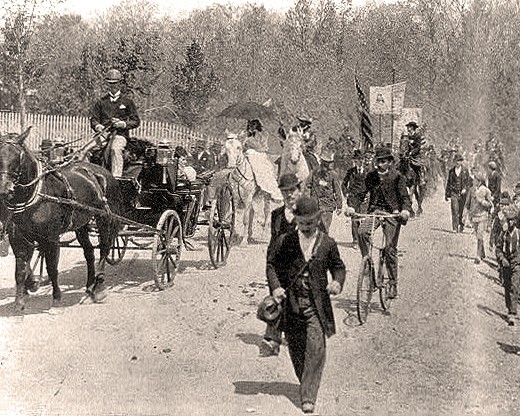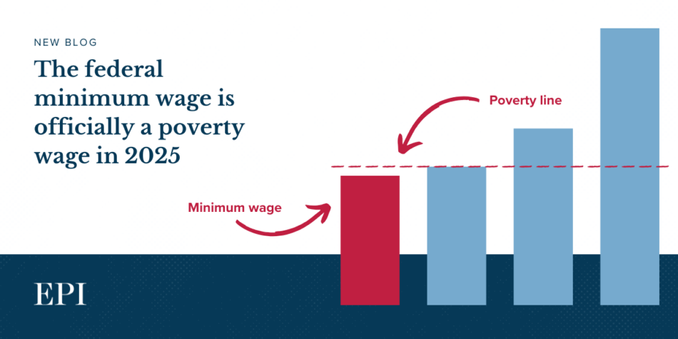@Dianora So, a few thoughts on What Might be Done to correct economic thinking ....
Long and multi-part.
First part here delves more into the general failings / holes in contemporary mainstream orthodox economics.
On pricing behaviours of goods and services under typical market conditions, it's possible to read Adam Smith's chapters on prices (mostly Book I, Ch. V--XI, and Book V, Ch. II) as discussing the prices (or tax revenues) of commodities, labour, capital stock (industrial investments), rents, interest, and assets (silver & gold to Smith). These ... behave differently, and not strictly in the supply/demand model dominant in conventional orthodox economics. As noted above, even Matt Ridley, bless his heart, agrees that market valuation of assets ... behaves poorly.
Much oligarchic wealth occurs not through trade but through asset inflation. That is, it's less that someone achieves obscene wealth by selling goods/services than that the commercial-legal entity which manifests that trade itself appreciates in nominal value. Billionaires don't sit atop heaps of cash but of assets which can be denominated in cash equivalents. (Often with many levels of leverage and indirection both.) Matt Ridley, not someone with whom I generally find agreement, has noted that markets work relatively well for commerce exchange but poorly for assets (from a book, I'd run across this in an IQ2 debate w/ David Runciman and Johan Norberg: https://www.intelligencesquared.com/events/the-new-optimism-with-matt-ridley-johan-norberg-david-runciman-and-laura-kuenssberg/.)
Wages and rents are two other key dynamics in that wages tend to fall to or below subsistence whilst rents tend to rise to claim all surplus beneficial value. The more one is subsidised (e.g., wage supports, rent subsidies) the worse the dynamic becomes, and this is a money-pump from workers to landlords. Tackling this requires both wage and rent-side reforms, e.g., UBI / living wage, and a wealth or land-value tax. Addressing workers' and tenants' rights is another key element, though more of politics/law than economics itself.
(Law and economics are tightly coupled in interesting ways. Hayek's training, f'rex, was in law.)
Business merger & acquisition is a huge hole in the "vote with your wallet" (a/k/a "free-market it harder") retort. That works if businesses are small, limited, and cannot buy out or otherwise crush competition, but fails utterly if in avoiding firm X by patronising firm Y, one finds X buying Y (often strictly because of customer flight, see e.g., Facebook -> Whatsapp or Amazon -> Diapers.com). Buy-and-kill is another failure mode. Both of these require remedies outside the markets, e.g., political, legal, social, or other actions.
Equivocation of wealth and profit, where wealth ("the annual produce and labour of the nation" https://en.wikisource.org/wiki/The_Wealth_of_Nations/Book_II/Chapter_3, which as many have noted means that wealth is a flow rather than a stock), and profit in the accounting sense (direct monetary revenues less direct monetary costs) is one of the more gaping holes in conventional economic argument. I've done some root-searching on that and find that much of the source seems to be in the cost accounting of Alexander Hamilton Church (and yes, related to that A.H.), which serves as the basis for modern accounting practice. Leo Tolstoy's What Shall We Do (a title invoked by Lenin's later book) has some interesting discussions on this.
"Wealth, as Mr Hobbes says, is power" is Smith's pithiest observation in all of WoN: The fact that economic and/or financial wealth translates to political and social power has profound impacts, and alone explains a huge part of the failings of US right-libertarian theology following from Hayek, von Mises, Rotthbard, and Nozick.
"Resistances to the Adoption of Technological Innovations" (Bernard Stern, 1937) discusses one dimension of this in the resistances of established powers (economic/commercial and others) to technological innovations: https://archive.org/details/technologicaltre1937unitrich/page/39 https://rentry.co/szi3g. I cannot recommend it highly enough.
Value's equivocation as "market price" in contemporary discussion is another failing. I see "value" actually being three distinct elements, any of which may fail to reflect underlying reality: real cost (all necessary inputs, labour, capital, time, natural resources, effluent sinks, unwanted/unintended consequences), exchange value (price), and use value. In practice, C <= P <= UV, that is, the exchange value lies somewhere between cost and use value, though in extreme circumstances that can be violated. In particular, extractive resources tend to have P < C, that is, the price is below the total cost, especially the time-based replenishment cost, of the resource; labour wages tend to fall to subsistence, rents tend to rise to subsume all use value, asset prices ... are strange (I've not sorted my thinking on this), interest rates seem to be a mix of market and central bank effects, and public goods (in the economic definition) are those for which market prices fall well below marginal cost and use-value, and are underprovisioned absent specific subsidy, with lighthouses, education, roads, infrastructure, information, and communications being classic exemplars.
Incidentally, the whole notion of a market exchange economy fundamentally relies on the underpricing of essnetial inputs (food, energy, raw materials, labour) with excess value being extracted at further levels of economic activity (manufacture, commerce, transport, finance, management, etc.) This is the revelation of Quesnay's Tableau Économique and further explorations of tiers of economic activity (Clark & Kennessey particularly). Typical categorisation:
- Primary Activities: Agriculture, forestry and fishing; Mining
- Secondary Activities: Construction; Manufacturing
- Tertiary Activities: Transportation, electric, gas and sanitary services; Wholesale trade; Retail trade
- Quatenary Activities: Finance, insurance, and real estate; Services; Public administration
More: https://news.ycombinator.com/item?id=37414034 and https://web.archive.org/web/20230612141005/https://old.reddit.com/r/dredmorbius/comments/74dm5o/seeking_research_on_inclusive_measures_of/.
Essentially, markets fail in establishing pricing in many ways, though how these might be addressed is challenging.
I'll note that I differ with Marx in attributing all value generation to labour, though that's often a significant component.
Risk is a whole 'nother case, and I'll point out that the "FIRE" sector of finance, insurance, and real estate all have a central focus on evaluating pricing risk of a portfolio against income streams (interest payments, premium payments, mortgage payments), with a linkage that's been noted to at least the 19th century if not before. Banks and insurance are the exceptions to Smith's general strong disdain for stock corporations, though an argument can be made for socialisation of these. Many government functions fall into provision of both public goods and security services (defence, health, major catastrophe), in which markets flagrantly fail. Robert K. Merton (overt/covert functions, unintended consequences) and Charles Perrow's work illuminates much here.
Understanding of GNP/GDP is greatly assisted if it's thought of not as a way to manage and measure total economic wealth (Smithian definition), but as a monetary metric born of an age when central banking was just finding its feet. Tuning the overall money supply appropriately is necessary, but not sufficient, and was a huge obstacle to resolving the Great Depression (1929--1939).
It's not the only problem which can occur, for which a classic 1945 paper on the economy of a WWII PoW camp remains an excellent if simplified exploration: https://www.jstor.org/stable/2550133. Kate Raworth's Donut Economics and numerous GDP modifications and alternatives (see: https://en.wikipedia.org/wiki/Gross_domestic_product#Proposals_to_overcome_GDP_limitations) improve on this. Simon Kuznets, GNP's creator, was well aware of its limitations, though his cautions are not only largely ignored, but difficult to find online at all (he has extensive writings, they ... are not digitised last I invested significant time in searching for them).
Thermodynamics and economics is another tremendous failing. The work of Nicholas Georgescu-Roegen, R.U. Ayres, and more recently Steve Keene (working with Ayres) in describing how the production function is explained not merely by labour + capital, but labour, capital, and energy is so flagrantly obvious that rejection by the orthodoxy is both a manifestation of mental illness and a crime against humanity and the entire ecosphere. It ties strongly into the "wealth is power" dynamic above, as well as the distortionary effects of wealth on information, media, ideology, and scientific understanding. That last is a major component of Naomi Oreskes's work (Merchants of Doubt, The Big Myth). For the role of energy in civilisation, Vaclav Smil's Energy and Civilization and Energy and World History, and Manfred Weissenbacher's Sources of Power are huge eye-openers. So, somewhat ironically, is Daniel Yergin's The Prize. He's an unabashed apologist for the petroleum industry, but his history does reveal its awesome transformational influence.
1/






